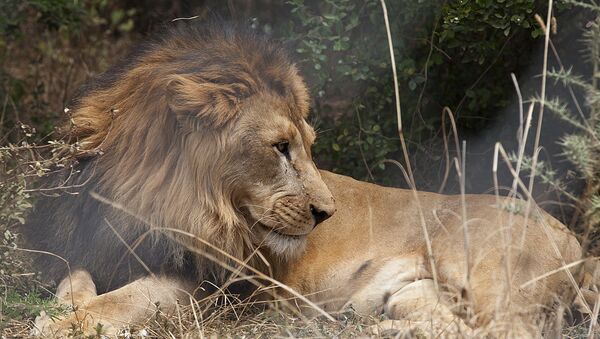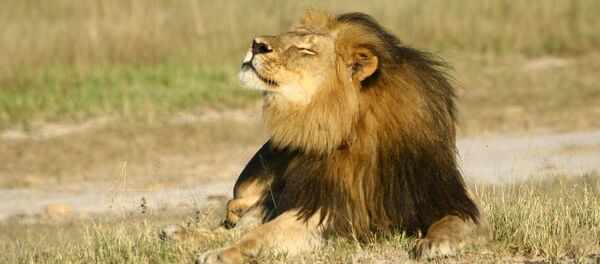During an expedition to the Alatash National Park in remote northwestern Ethiopia, researchers from the University of Oxford's Conservation Research Unit discovered that a healthy population of lions were alive and well in the park, which is located in an area far beyond the previously known habitat for lions.
Yay! Up to 200 lions found lion-around in Ethiopia — boosting dismal population estimates https://t.co/xrXccDAMOo pic.twitter.com/cKDZ8r4AjQ
— Wendy Zukerman (@wendyzuk) February 1, 2016
After hearing a series of unconfirmed rumors about the existence of lions in the area, the research team was encouraged by the sight of lion footprints, which was then backed up by film footage of the lions at night.
'A Rare Find, Probably the Last'
Speaking from Ethiopia, head researcher Hans Bauer told Sputnik that the discovery was a huge surprise for the team.
"[I was] not confident at all — I thought all lion populations would have been reported by now and was skeptical about the few unconfirmed rumors."
The Oxford team has estimated that there are somewhere between 100 and 200 lions in the Alatash National Park and the adjacent Dinder National Park in neighboring Sudan.
Despite the optimism associated with the discovery, Mr Bauer said it isn't likely that other hidden lion populations will be found in the future.
"I'm afraid this is a very rare occasion, probably the last — I would be surprised if another undocumented lion population shows up anywhere. There was a single individual lion in Gabon last year, but that is dispersal, that can always happen and is very different. This finding is exceptional," Bauer told Sputnik.
"We have a habit of deleting populations from the distribution map, this is the first time I'm adding one. I don't know how significant it is, but it is certainly extremely satisfying," he added.
"One new small population does not alter the fact that declines in numbers of lions across Africa are worrisome, but for at least one day we should celebrate."
Lion Preservation: 'There Is No Silver Bullet'
However, with lion numbers in west and central Africa declining, there are fears the total population of wild lions may halve in the next 20 years.
Bauer told Sputnik that there were many challenges associated with trying to preserve wild lion numbers in Africa.
"Lion conservation is difficult in terms of resource mobilization, capacity building and decision making, but technically, once all the resources are available, it is not difficult," Bauer told Sputnik.
"We know very well how to save lions, there is no silver bullet, but depending on the situation we have various instruments that have proven to be very effective, such as building bomas [fences around villages to keep lions out and keep livestock safe at night], educating communities on improved herding, compensation of losses, strengthening of park management and law enforcement, anti-poaching activities and activities aimed at closing down illegal bushmeat markets [to stop prey depletion].
"We're not doing enough as obvious from the declines, I hope international awareness will lead to more funding for improved conservation outcomes, and a positive story like this is of course nicer to raise that awareness than the usual doom and gloom."



